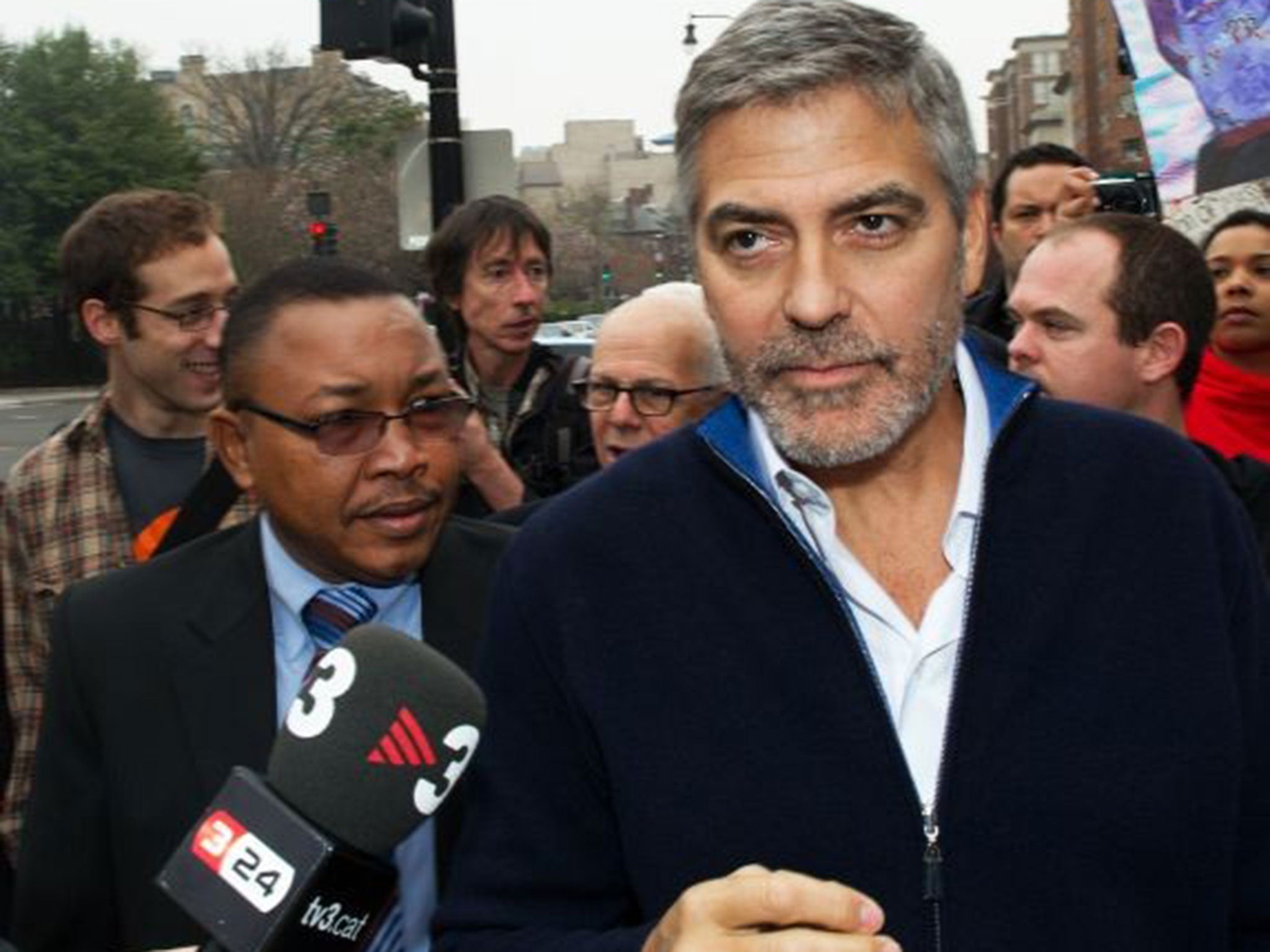South Sudan humanitarian crisis: The poor media coverage highlights the flaws in news gathering

The media is agog at the prospect of George Clooney’s imminent marriage to British-Lebanese lawyer Amal Alamuddin but less struck with a matter that is also close to his heart, the unfolding humanitarian disaster in South Sudan.
This month the world’s youngest country marked its third anniversary. Next month, I understand, parts of South Sudan will be declared as being in a state of famine. Finally the region may get the news coverage it merits after seven months of civil war, which have caused carnage and left more than 1.5 million people displaced.
Of late, Clooney has been largely absent from the story, possibly embarrassed that his much-hyped Satellite Sentinel Project failed to give the early warning signal it was designed for. He might also be reluctant to engage with the media after his recent tussle with the Daily Mail, in which he rejected the paper’s apology after its insinuation that members of Alamuddin’s family were unhappy with her choice of partner.
The Hollywood actor is responsible for a wider awareness of tensions in north-east Africa following a high-profile campaign in the Darfur region of Sudan that began in 2006. He was in South Sudan for its independence referendum in 2011. And although he might now be focusing on his dream wedding in Lake Como, it’s not good enough that the media should rely on a film star to keep such an important story in the public eye.
The tragedy of South Sudan highlights a number of basic flaws in modern news. Despite the breadth of online information, the major news providers still play an essential role in bringing humanitarian stories to the public’s attention. It is the misfortune of the starving and homeless in South Sudan that their agony coincides with the appalling turmoil in Syria, Gaza and Ukraine.
The Western media only has appetite for so much foreign news.
What is more, it’s another awful African story. With news organisations challenged by tightening budgets, many rely on a single Africa-based correspondent. And as the bloodshed has been taking place in South Sudan, much of the Western media’s African press corps has spent most of the past four months deployed at the High Court in Pretoria, live tweeting details of the Oscar Pistorius trial. The civil war in South Sudan broke out on the day of another South Africa-based global news story, the funeral of Nelson Mandela.
Juba, the South Sudanese capital, is not in any sense an international media hub. Al Jazeera has a correspondent and there are a few foreign stringers filing paragraphs when they can catch the attention of a foreign editor. But journalists visiting this dangerous territory are dependent on aid agencies and other helpers, limiting their ability to report the full story. It’s not the all-encompassing information flow that we like to think we have in the modern media age.
Neither is this country in a position to tell its own story. Article 24 of its new constitution contains a laudable commitment to protecting freedom of expression, but the words are hollow ones, given the conditions under which local journalists operate. A review carried out this month by freedom of information group Reporters Without Borders details how the local media is being cowed by armed forces on both sides of the conflict. Officials loyal to President Salva Kiir – known for his black cowboy-style hat – demand “patriotic” journalism as they detain reporters and seize entire print runs of newspapers such as the Juba Monitor, which continues in adversity under its courageous editor Alfred Taban.
Media working in areas controlled by rebels fare no better. “For the most part journalists can no longer work there, having fled into exile or ended up in camps for displaced persons,” says the report. Some radio stations have had their equipment destroyed and one, Radio Bentiu, is said to have been used to broadcast hate speech against ethnic groups – behaviour that was a trigger for the Rwanda genocide of 1994.
In such circumstances it is incumbent on Western media to report the story. One thinks back to the coverage of the Somalia famine, which killed 260,000 in 2011. The former BBC news chief Kevin Bakhurst took a brave decision to send big-hitter Ben Brown to Dadaab in north-east Kenya, scene of the largest refugee camp in the world. The media likes such superlatives – and Dadaab supplied enough stories to make real impact.
Such journalistic commitments – not helped by last week’s BBC announcement of cuts in its World Service and global news budgets – can save lives. Aid workers identify a direct correlation between media coverage of humanitarian disasters and public donations to appeals. It also influences politicians. The United Nations says $1.8bn (£1.05bn) is needed in South Sudan but only $758m) has been raised, with £93m from the UK Government.
Aid agencies are trying to keep the story alive. Oxfam garnered a brief rush of stories earlier this month after taking Keira Knightley out to the Bor refugee camp, north of Juba. She gave interviews to various outlets, including The Daily Telegraph and Victoria Derbyshire’s show on BBC Radio 5 Live. Even without George Clooney, celebrity remains the framework for this story.
Strangely, the official declaration of famine in South Sudan may come as a relief. “It sometimes takes the f-word to galvanise people,” said one agency worker. Meanwhile, subsistence farmers are preparing a “green harvest” of what few crops exist, reaping the food when it’s partially ripe to fend off starvation. Such actions will worsen the food shortage.
Famine will force this issue up the news agenda. It’s time for the media to do some planting.
Twitter: @iburrell
Subscribe to Independent Premium to bookmark this article
Want to bookmark your favourite articles and stories to read or reference later? Start your Independent Premium subscription today.

Join our commenting forum
Join thought-provoking conversations, follow other Independent readers and see their replies